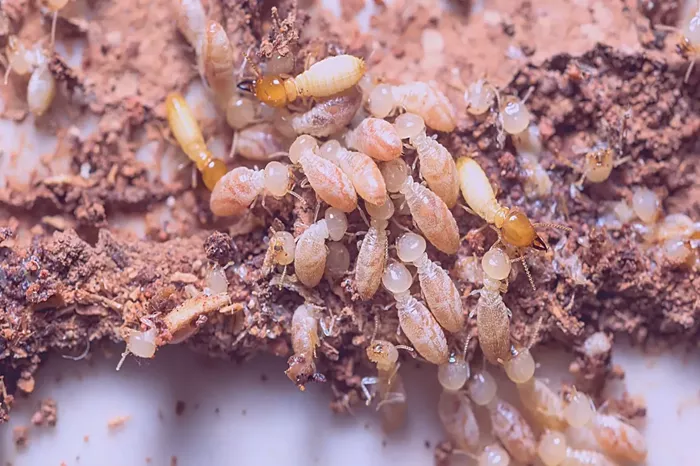Termites are a significant concern for homeowners and property managers due to their destructive nature. While various chemical treatments are available, some unconventional methods, such as diesel fuel, have been considered for termite control. This article delves into whether diesel fuel can effectively kill termites, examining the chemical properties of diesel, its potential impact on termites, and the associated risks and benefits.
The Chemistry of Diesel Fuel
Composition of Diesel Fuel
Diesel fuel is a complex mixture of hydrocarbons derived from crude oil. It primarily consists of:
Alkanes (paraffins): Saturated hydrocarbons with single bonds.
Cycloalkanes (naphthenes): Saturated hydrocarbons with cyclic structures.
Aromatics: Hydrocarbons with one or more benzene rings.
Properties of Diesel Fuel
The properties of diesel fuel that are relevant to termite control include:
Flammability: Diesel is highly flammable, posing a fire risk.
Toxicity: Diesel contains toxic compounds that can harm living organisms.
Viscosity and Penetration: Diesel’s viscosity allows it to penetrate porous materials.
How Diesel Fuel Affects Termites
Direct Toxicity
Diesel fuel is toxic to many insects, including termites. The hydrocarbons in diesel can:
Disrupt Cellular Membranes: Diesel can dissolve the lipid membranes of termite cells, causing cell damage and death.
Interfere with Respiration: Diesel fumes can suffocate termites by obstructing their spiracles (breathing openings).
Chemical Burns
Diesel can cause chemical burns to termites’ exoskeletons, leading to desiccation and death. The contact with diesel can:
Damage Cuticle: Diesel can break down the protective waxy layer on termites’ exoskeletons.
Induce Desiccation: Loss of the protective layer leads to dehydration and death.
Application Methods of Diesel Fuel for Termite Control
Surface Treatment
Applying diesel to infested surfaces can:
Create a Barrier: Prevent termites from entering or exiting treated areas.
Kill on Contact: Directly kill termites that come into contact with treated surfaces.
Injection into Wood
Injecting diesel into termite-infested wood can:
Penetrate Galleries: Reach termites hiding in their galleries.
Kill Colonies: Potentially kill entire colonies if the fuel reaches the queen and reproductive members.
Risks and Drawbacks of Using Diesel Fuel
Environmental Impact
Diesel fuel can have significant environmental consequences, including:
Soil Contamination: Diesel can leach into the soil, affecting plant life and groundwater.
Water Pollution: Diesel runoff can contaminate water sources, harming aquatic life.
Health Hazards
Exposure to diesel fuel poses health risks to humans and pets:
Inhalation Risks: Fumes from diesel can cause respiratory issues.
Skin Contact: Diesel can cause skin irritation and chemical burns.
Fire Hazards
The flammability of diesel fuel makes its use risky:
Fire Risk: Diesel-treated areas can become fire hazards, especially in hot and dry conditions.
Explosion Risk: Improper storage and handling of diesel can lead to explosions.
See also: Will Diesel Fuel Ruin a Gas Engine?
Effectiveness of Diesel Fuel Compared to Traditional Treatments
Chemical Termiticides
Traditional termiticides are specifically formulated for termite control:
Targeted Action: Designed to kill termites effectively and safely.
Residual Effect: Provide long-lasting protection against termites.
Physical Barriers
Physical barriers, such as metal shields and sand, prevent termite entry:
Non-Toxic: Do not pose chemical risks.
Durable: Provide long-term protection without the need for reapplication.
Biological Control
Biological methods involve using natural predators or pathogens:
Eco-Friendly: Minimize environmental impact.
Specificity: Target termites without affecting other organisms.
Expert Opinions and Recommendations
Pest Control Experts
Most pest control professionals advise against using diesel fuel:
Safety Concerns: Highlight the health and environmental risks.
Ineffectiveness: Note that diesel does not provide long-term protection.
Environmental Scientists
Environmental experts warn about the ecological impact:
Soil and Water Quality: Emphasize the risks of contamination.
Biodiversity: Point out the harm to non-target species.
Conclusion
Assessing the Viability
While diesel fuel can kill termites, its use is fraught with risks:
Short-Term Effectiveness: Diesel can provide immediate results but lacks long-term efficacy.
Environmental and Health Risks: The potential harm to the environment and human health outweighs the benefits.
Alternative Solutions
For effective and safe termite control, consider:
Professional Pest Control Services: Use licensed professionals with access to safe and effective treatments.
Eco-Friendly Methods: Explore biological and physical control options.
Final Thoughts
Using diesel fuel for termite control is not recommended due to its associated risks. Opting for professional pest control solutions and environmentally friendly methods ensures effective and sustainable termite management.
By understanding the properties of diesel fuel and its effects on termites, homeowners can make informed decisions about termite control. While diesel fuel may offer immediate results, the long-term consequences and risks highlight the importance of safer, more effective alternatives.
Related topic:
Will Diesel Fuel Kill Weeds? [Revealed]

